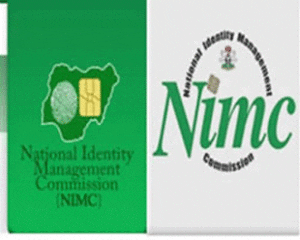National Issues
National Identity And Data Capture Activities in Nigeria -By Chris Onyemenam


In the recent past I have read a few unwholesome commentary or criticisms of the work of the National Identity Management Commission, NIMC, the Commission with the statutory responsibility for establishing and managing a unique identification scheme for Nigeria, otherwise known as ‘National Identity’. Indeed one such commentary, while describing the project as laudable, due to perceived effects in implementation, concluded that it should be scrapped as the idea had been over taken by the proliferation of data capture activities and existence of various other national ids like driver’s license’ ‘e-passport, permanent voter’s card etc. I will not attempt to address these criticism nor defend the achievements of the NIMC, but restate the facts they seek to distort. I also advise that the audited accounts of the NIMC are on its website for independent reviews.
In my humble opinion, government’s policy objective is very clear and the strategic intent unambiguously stated: to address a simple but intractable phenomenon–Unique Individual Identity–and does not need to be mystified for very imprudent reasons.
It need not be so. I will attempt here to present the main issues, to help put to rest the unfortunate controversy based on the emerging consensus that there should be some kind of harmonisation. The application to identity management of recent developments in technology has been equally strong. Not to talk of the ICT revolution and the social media penetration in Nigeria. All these have led to a growing need for digital or electronic forms of identity, further justifying the clamour for an end to the proliferation. It is therefore necessary to put the records straight.
Only a rational and deliberate approach to curb this scourge of proliferation of data capture activities on our dwindling national resources can stop the drift. It is submitted that an emphatic enforcement of current government policies will help ameliorate the national fiscal burden from this brazen proliferation or seeming chaos in the identity sector.
The main issue, simply put, is a lack of proper understanding of the problem or challenge of identity management: the absence of a unique identification scheme, (UIDS) and how best to implant one. A UIDS has only one basic objective: it is about ‘WHO YOU ARE’ and it involves three deliberately structured activities, at the minimum–collect data (demographic and biometric), process and store data (and issue a credential on that basis) and finally provide the stored data for several uses including a means of verification. It typically ends with the issuance of a unique ‘identifier’ called the National Identification Number (NIN), also known as the Social Security Number, in the United States of America, or
‘Addaharr’ in India– a set of numbers issued based on a unique way of establishing an individual’s identity.
There is no absolute duplicate or substitute to a UIDS. Very often, however, the way ‘breeder’ documents used in establishing the ‘identity’ are determined, especially in less developed jurisdictions, creates its own set of problems. But without doubt, there can only be ‘one version of truth’ of an individual’s personal information in establishing ‘who he or she is’. This must, of necessity, be verifiable and be linked to other forms of ‘identity’ based on whether or not you are ‘eligible’ or ‘qualified’ for a benefit or service.
How these two ‘identity’ categories–‘National’ or foundational and ‘Functional’ or eligibility- are created or developed, integrated and managed, (and there are at least two ways of doing this) makes the difference between a chaotic data capturing situation that breeds ghost, duplicate and multiple identities and prevalence of forged identity tokens and a well organized UIDS. In Nigeria, as with so many similar jurisdictions, the challenge has been about how you develop and achieve this from a historical past where the issuance of identity tokens were based on manual records that did not take this requirement for integration into account.
Consequently the dilemma is where to start from. Creating the more expensive need–specific identities and then later integrate them or start with a central national identity and integrate the specific ones to it. As I often like to put it, there is a need for a shift in paradigm away from ‘isolated card issuance activities to a focus on an ‘identity management system’.
Clearly therefore unless and until we understand that you are first a known or established and verifiable identity, (who you are) you cannot present an ‘identity’, (national or foundational) the singular most effective criterion used to determine your ‘benefit’ or eligibility status–driving, pension, insurance, subsidies, banking, travel, tax, voting, student, employee, etc. (eligibility or functional). As simple as it is, if poorly managed it stunts, rather than facilitates, social and economic development. Just to be clear, we need to understand that there is a major difference between identity management– the object of a unique identification scheme –and a focus on card issuance– a sub component that has characterised our efforts as a nation, until recently.
Three concepts, at this stage, need quick mention for clarity. First is the concept of ‘identity’ – which is the set of physical and behavioural characteristics by which an individual is uniquely recognisable. When there is only one such ‘official’ or ‘national identity’, it provides the ‘basis’ for ‘functional identity’. Represent this by a set of randomly generated number, like the National Identification Number’, NIN, or the Social Security Number in the USA, and you have what is called the ‘identifier’. Finally when you have a set process to confirm or deny that a claimed identity is correct-you have what we call simply ‘identity verification’. Reduce all of these into electronic or digital forms and the humongous value proposition becomes ever so evident.

















